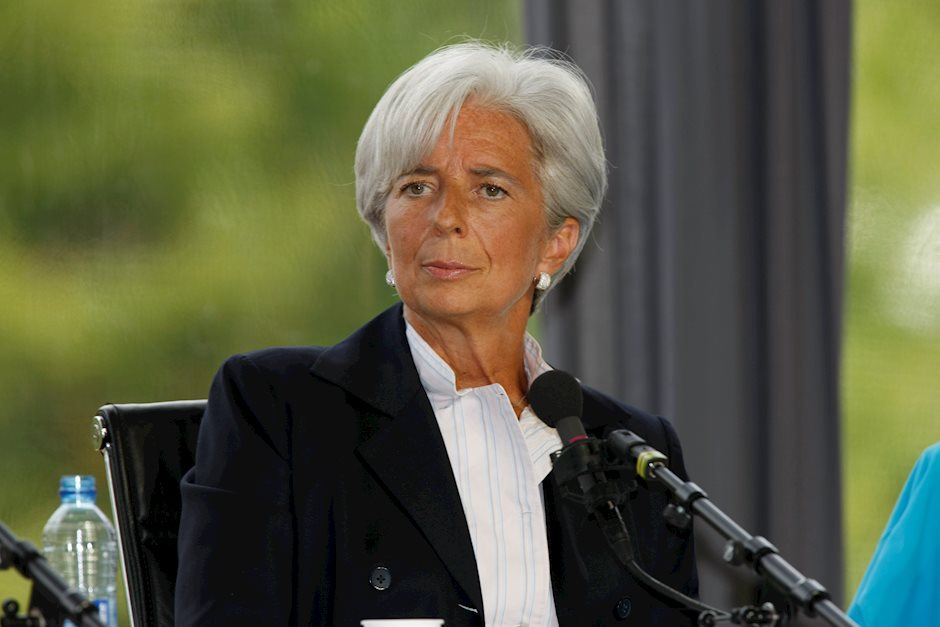ECB Lagarde: Aggressive rate cut bets don't help ECB

Most recent article: ECB President Christine Lagarde is set to take the stage again at Davos on Friday, January 19.
Speaking on the sidelines of the World Economic Forum (WEF) Annual Meeting in Davos, European Central Bank (ECB) President Christine Lagarde said in a Bloomberg interview that she is “confident inflation will reach the 2.0% target.”
Additional quotes
Inflation is not where the ECB wants it.
But on the right path towards the 2.0% target, though no victory yet.
Too optimistic markets not helpful in fight against inflation.
We can't shout victory until inflation sustainably at 2.0%.
We're watching wages, profit margins, energy and supply chains.
Second-round effects would be cause for concern.
The ECB has achieved peak rates, short of a major shock.
It is likely that we will cut rates by the summer.
Market reaction to Lagarde remarks in Davos
At the time of writing, EUR/USD is off the five-week lows of 1.0855, trading flat at 1.0867.
Euro price today
The table below shows the percentage change of Euro (EUR) against listed major currencies today. Euro was the weakest against the Pound Sterling.
| USD | EUR | GBP | CAD | AUD | JPY | NZD | CHF | |
| USD | 0.06% | -0.11% | 0.20% | 0.58% | 0.41% | 0.37% | 0.12% | |
| EUR | -0.06% | -0.17% | 0.15% | 0.52% | 0.37% | 0.34% | 0.05% | |
| GBP | 0.12% | 0.16% | 0.31% | 0.67% | 0.52% | 0.48% | 0.21% | |
| CAD | -0.20% | -0.15% | -0.32% | 0.37% | 0.21% | 0.17% | -0.11% | |
| AUD | -0.58% | -0.52% | -0.68% | -0.38% | -0.15% | -0.19% | -0.47% | |
| JPY | -0.43% | -0.36% | -0.56% | -0.23% | 0.15% | -0.06% | -0.31% | |
| NZD | -0.39% | -0.32% | -0.49% | -0.17% | 0.19% | 0.04% | -0.28% | |
| CHF | -0.11% | -0.05% | -0.21% | 0.09% | 0.46% | 0.31% | 0.27% |
The heat map shows percentage changes of major currencies against each other. The base currency is picked from the left column, while the quote currency is picked from the top row. For example, if you pick the Euro from the left column and move along the horizontal line to the Japanese Yen, the percentage change displayed in the box will represent EUR (base)/JPY (quote).
ECB FAQs
What is the ECB and how does it influence the Euro?
The European Central Bank (ECB) in Frankfurt, Germany, is the reserve bank for the Eurozone. The ECB sets interest rates and manages monetary policy for the region.
The ECB primary mandate is to maintain price stability, which means keeping inflation at around 2%. Its primary tool for achieving this is by raising or lowering interest rates. Relatively high interest rates will usually result in a stronger Euro and vice versa.
The ECB Governing Council makes monetary policy decisions at meetings held eight times a year. Decisions are made by heads of the Eurozone national banks and six permanent members, including the President of the ECB, Christine Lagarde.
What is Quantitative Easing (QE) and how does it affect the Euro?
In extreme situations, the European Central Bank can enact a policy tool called Quantitative Easing. QE is the process by which the ECB prints Euros and uses them to buy assets – usually government or corporate bonds – from banks and other financial institutions. QE usually results in a weaker Euro.
QE is a last resort when simply lowering interest rates is unlikely to achieve the objective of price stability. The ECB used it during the Great Financial Crisis in 2009-11, in 2015 when inflation remained stubbornly low, as well as during the covid pandemic.
What is Quantitative tightening (QT) and how does it affect the Euro?
Quantitative tightening (QT) is the reverse of QE. It is undertaken after QE when an economic recovery is underway and inflation starts rising. Whilst in QE the European Central Bank (ECB) purchases government and corporate bonds from financial institutions to provide them with liquidity, in QT the ECB stops buying more bonds, and stops reinvesting the principal maturing on the bonds it already holds. It is usually positive (or bullish) for the Euro.
Author

Dhwani Mehta
FXStreet
Residing in Mumbai (India), Dhwani is a Senior Analyst and Manager of the Asian session at FXStreet. She has over 10 years of experience in analyzing and covering the global financial markets, with specialization in Forex and commodities markets.

















